It has been a while for some time, on eBay, to buy a commodore PET, CBM 8032 (or another similar model) and the opportunity for a computer that did not cost much was finally presented.

Although the price was already competitive, I made a “delicately” lower offer to the seller, compared to the purchase price.
I am very happy that the seller accepted the figure I proposed! On the other hand, apart from paying a lot of transport costs and customs duties, because the package came from the United States, it is a bit of a problem to try it. In fact we will not do it today, because the computer works 110 volt 60 Hertz.
So I have to find a way to power it, to make this Commodore PET turn on.
Commodore PET, CBM 8032, technical characteristics and specifications
Let's see together the technical specifications of this Commodore PET, CBM 8032. First of all PET is the acronym for Personal Electronic Transactor.

The CBM 8032 is an 8-bit desktop computer, intended for the business market: it was mainly found in offices. It was developed in the second half of 1979 and produced starting in 1980.
In a single case, we find the monitor, motherboard, power supply and full keyboard. The floppy disk drive and cassette player are external.
The monitor is a 12-inch, monochrome green, 80-column x 25-line CRT, controlled by the MOS 6545 controller.
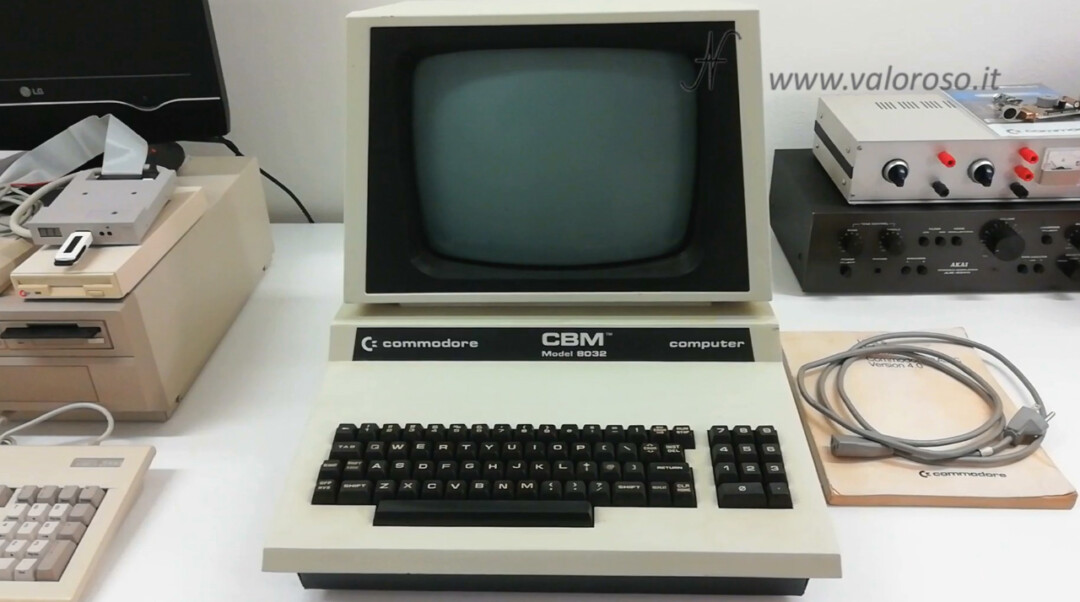
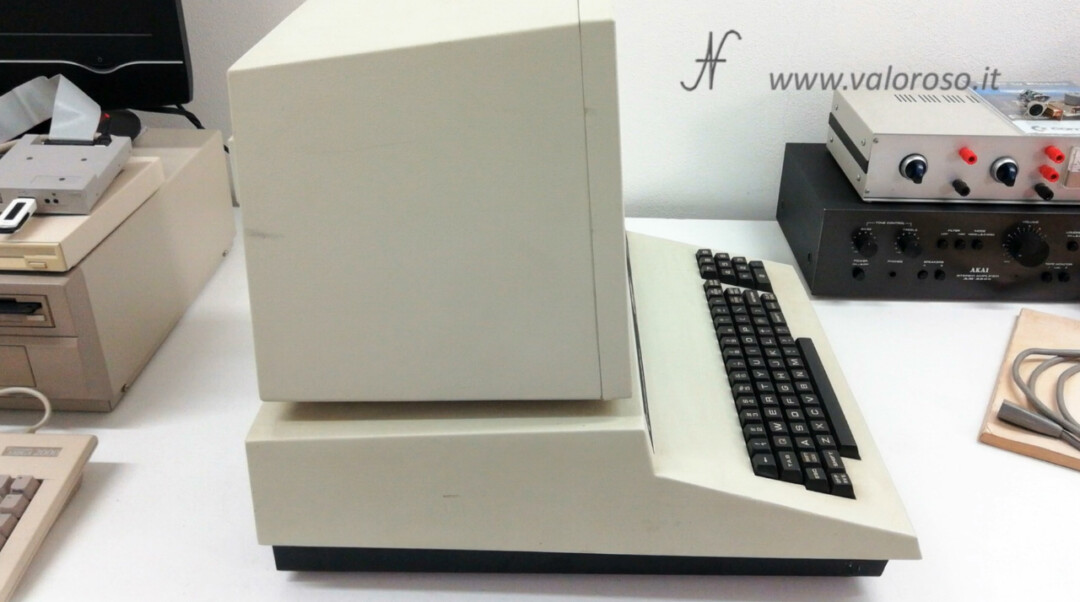
The microprocessor is the MOS 6502: 8-bit and 1 MHz clock frequency.

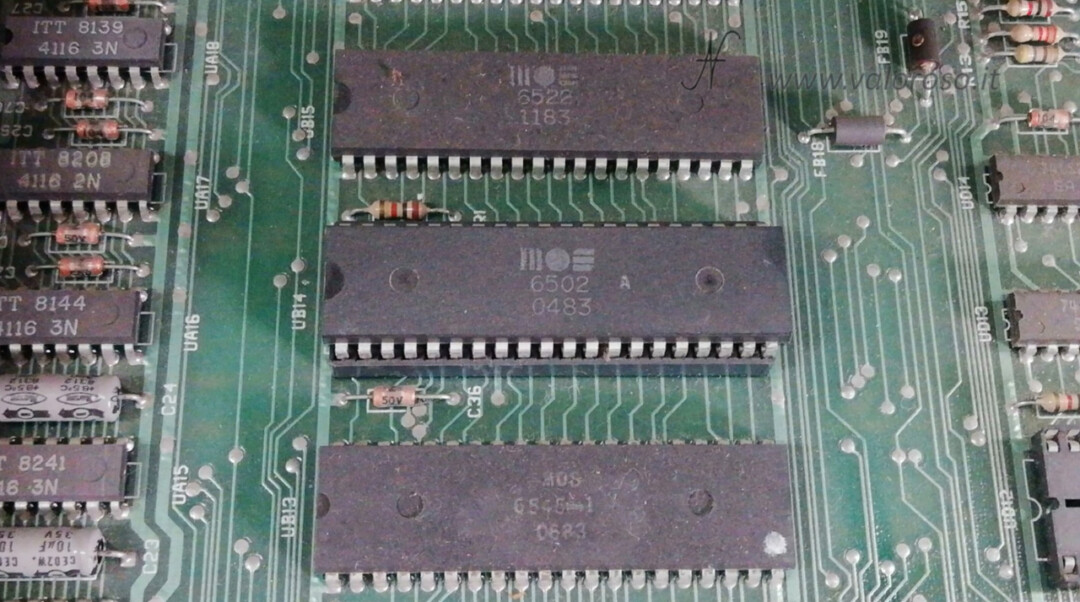
The CBM 8032 is equipped with 32 Kbytes of RAM. From the same series of CBM 8000 computers, there were also others with different RAM sizes.
There is a piezo speaker for the emission of simple sounds.
Regarding the operating system, the Commodore PET starts directly with the Basic V 4.
The CBM 8032 I bought comes from the United States and runs on 110V AC. Of course there are also European Commodore PETs, powered by 220 V.
Absorption and just over 100 watts.
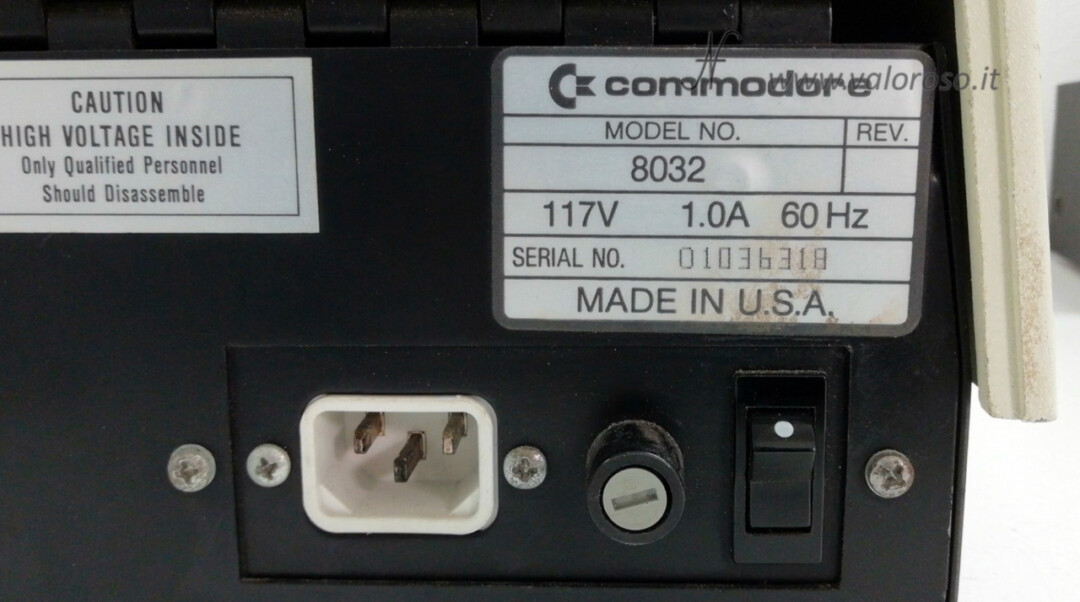
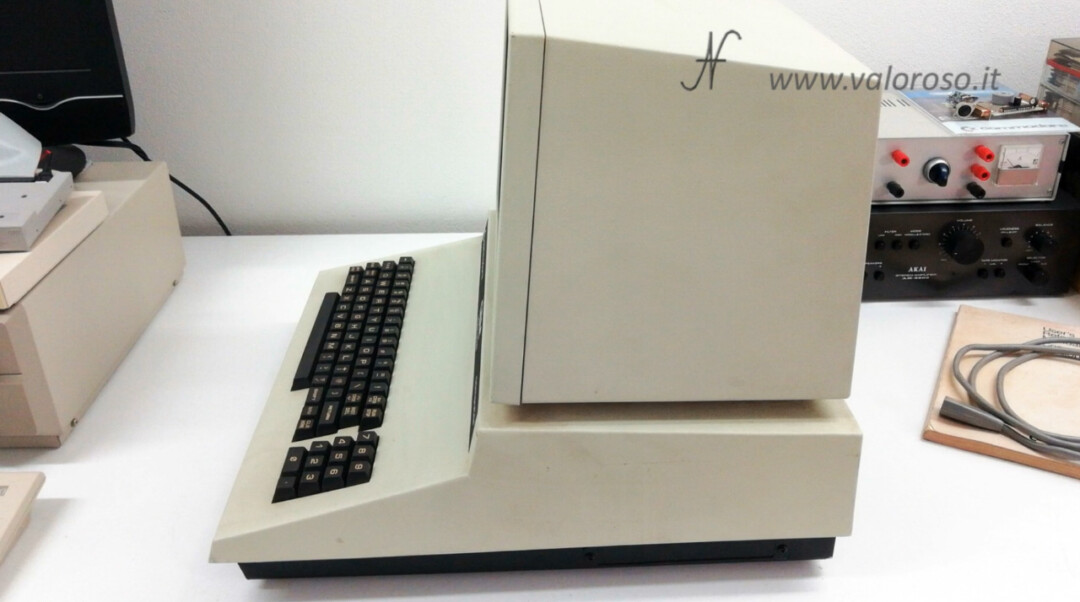
The transport and the package
The commodore PET I bought comes from the United States. I advised the seller to pack it well and luckily it did.
And here you can see, in the package, the Commodore PET CBM 8032!
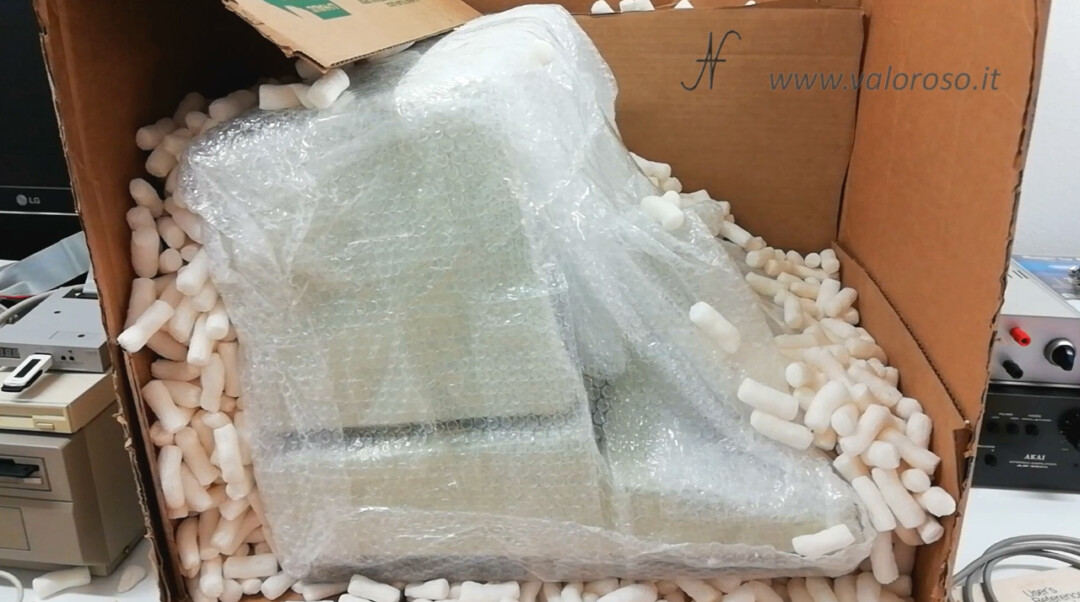
The conditions of the Commodore PET CBM 8032
The computer conditions are really good! There is some small scratches, but nothing to worry about.
In the back there is a small turn, but I'm sure I will be able to fix it, probably pushing the panel from the inside. As you can see, the power supply voltage is 117 Volt, which we vulgarly call 110v 60Hz. It is the US network tension: here in Italy it is 220v 50Hz.
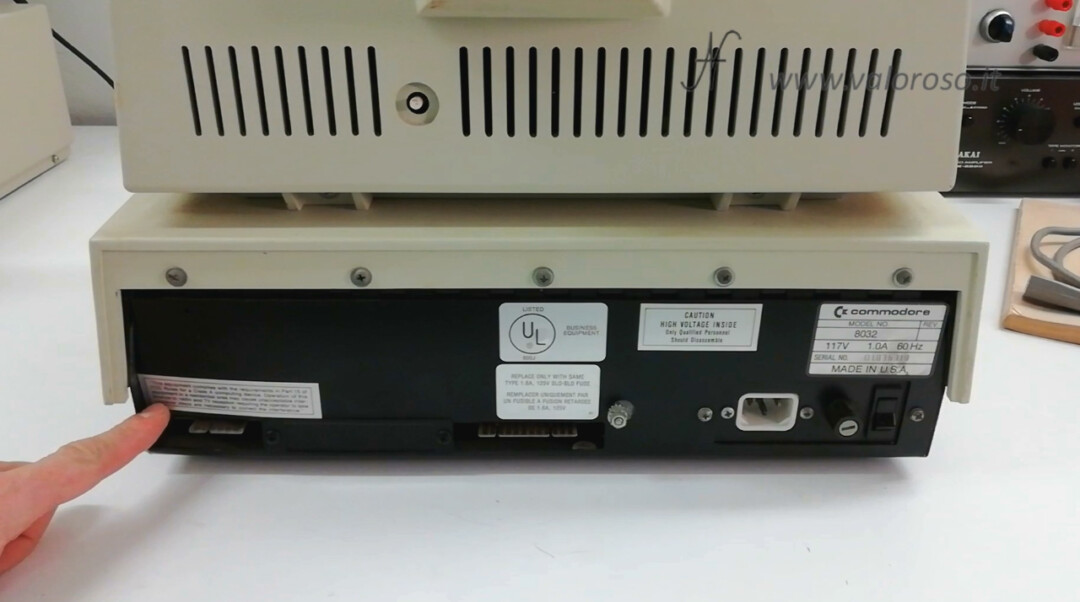
Posteriorly to the monitor, there is a piece of scotch tape. There is also another sign of scotch tape, light, above the monitor.
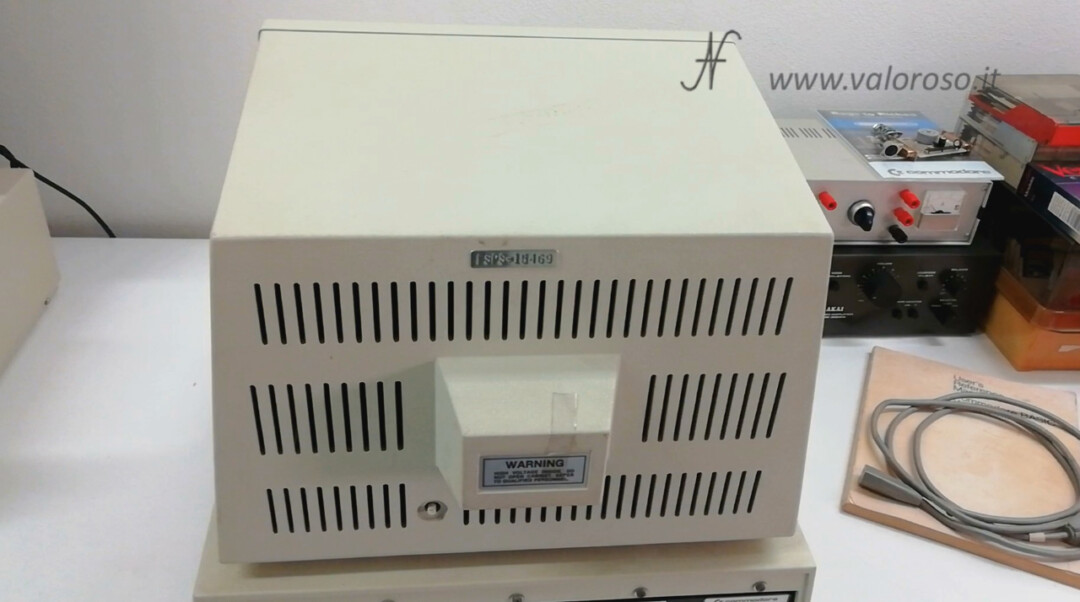
The sound of the keys is spectacular! It is really a satisfaction to press them!
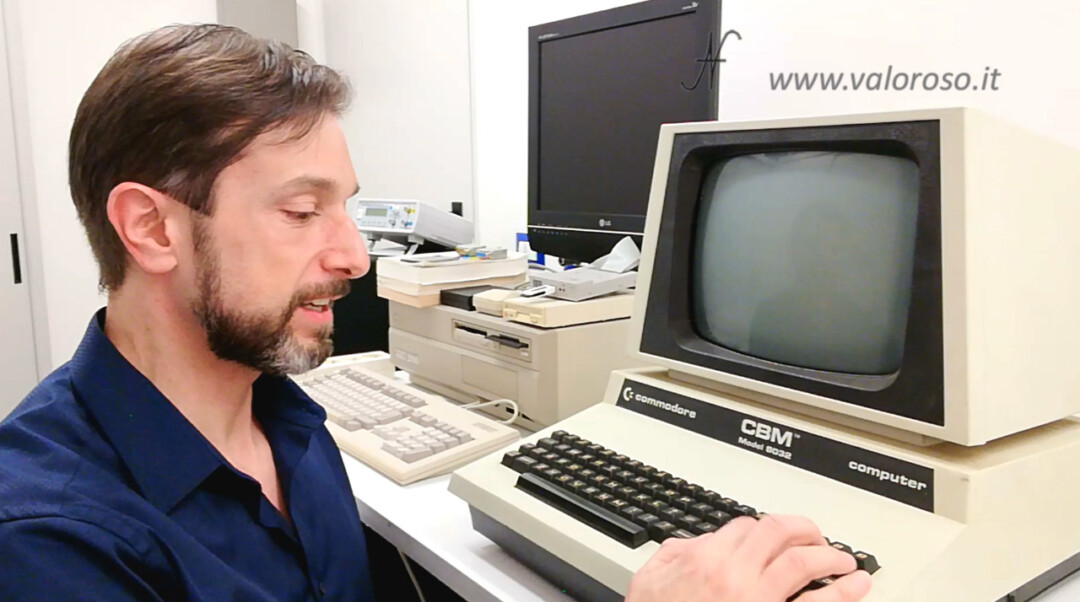
Interior of the Commodore PET, CBM 8032
Let's take a look inside the computer. At the bottom of the computer there are only two screws to unscrew. Posteriorly, there is a zipper: in fact, posteriorly must not unscrew anything.

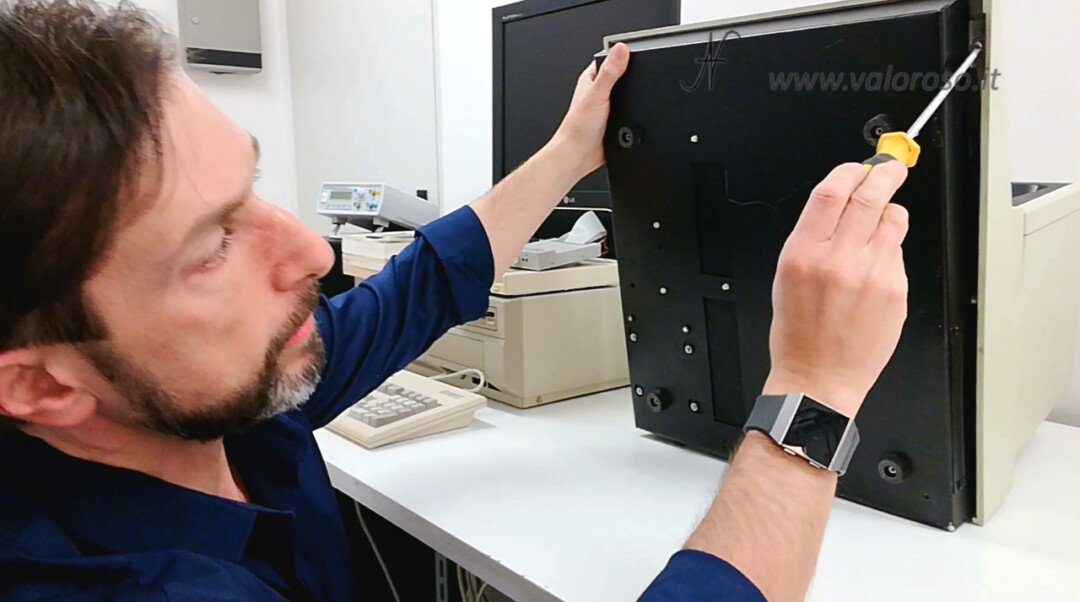
Here: let's see the Commodore Pet inside: there is the motherboard, the transformer, the condenser of level and, inside the monitor, the CRT and the monitor management card. The keyboard is also found.
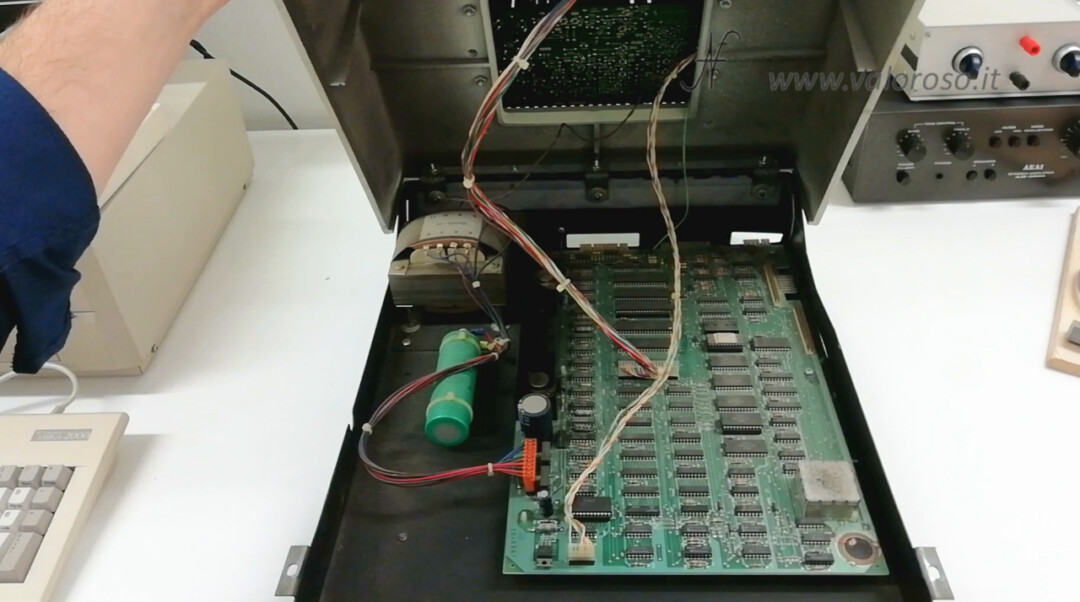
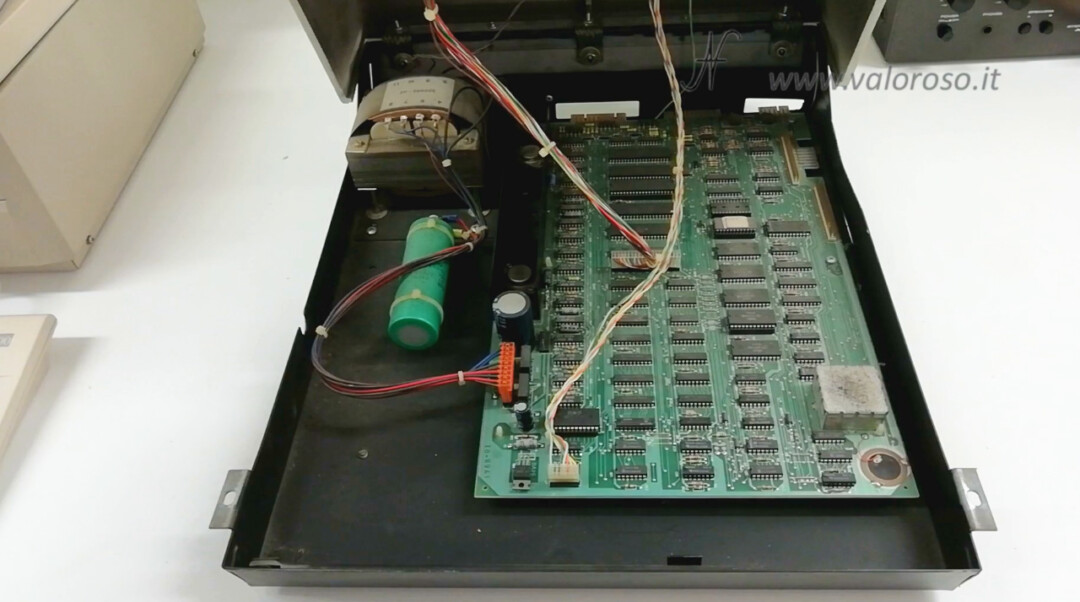
Even inside, the computer presents itself in good condition, although it is a little dusty.
First experiments to power the Commodore PET at 220V
While the back computer is open, we can try to unscrew the transformer. Maybe, fortunately, the primary winding has 2 tensions ...
Behind the transformer there is a third cut screen, red. Together with the black and white which, evidently, are connected to the external socket.
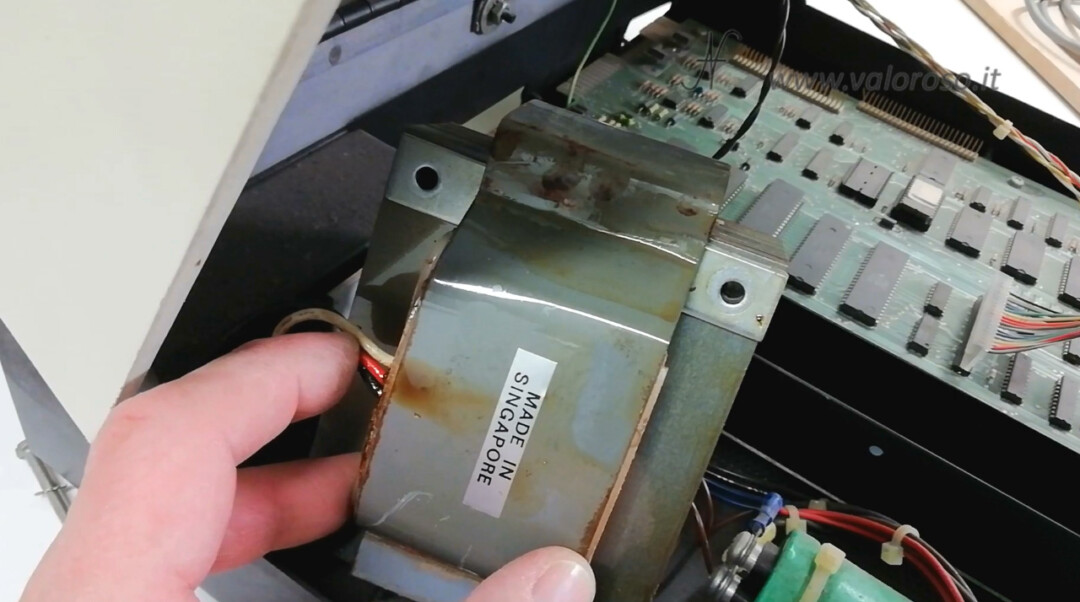
Could this red wire be the 220V socket? It would be great luck!
Let's do a test: let's measure with the tester.
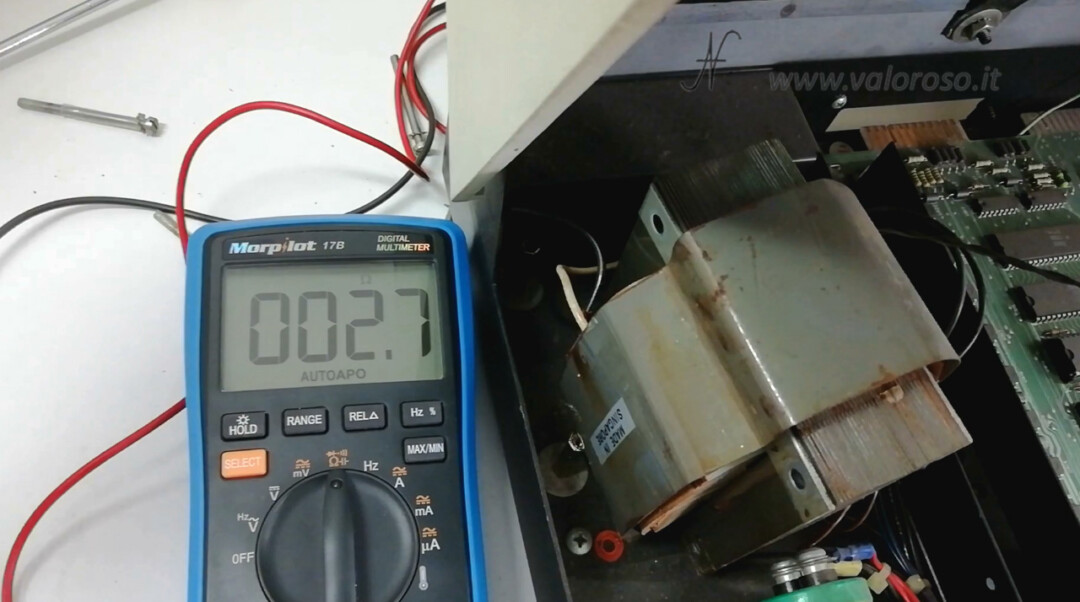
I connected the tester to the power socket of the Commodore Pet. Taking on the switch, the resistance of the primary of the transformer measures, continuously, 2.6 ohm.
By measuring the resistance between a contact of the power socket and the red wire, the tester returns the value of about 1.6 ohms (in direct current).

Unfortunately, we find ourselves more or less in the middle of the winding. If it had been the taking of the 220V, we should have expected about the double the resistance measured to the power connector, then between 5 and 6 ohm.
Instead, finding 1.5 ohms, we can conclude that the red wire is an intermediate socket of the transformer, which unfortunately, is useless to us!
Continues ...
When I solve the problem of how to power the computer, I will record another video and write a second article, so you will be able to see how this amazing Commodore PET, CBM 8032 works.
To be notified when I publish more videos related to retro computers and vintage electronics, I invite you to subscribe to the YouTube channel and activate the notification bell!